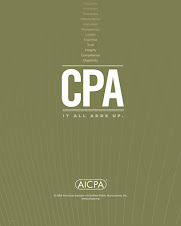As the debate over health care and health care costs continued to draw attention, it appeared as if the smallest of businesses, those who are self-employed, were being ignored. Most of the health care related tax breaks and credits have been focused on businesses with employees but those who are self-employed or primarily family owned have been left out. Until now.
Self-employed persons are finally getting a break. Under section 2042 of the Business Jobs Act of 2010 recently passed by Congress, those who are self-employed and pay their own health insurance premiums now get a break.
Currently, if you are self-employed, you can only deduct health insurance premiums from income before computing “regular” federal income tax; however, SE tax (self-employment tax), or Social Security and Medicare tax, is computed on the entire amount. So-called W-2 employees were treated differently.
That will now change. Persons who are self-employed will be able to deduct the cost of health insurance premiums from income before calculating SE tax. That results in a savings of nearly 15% over the cost of those premiums: Social Security tax is payable at a rate of 12.4% and Medicare tax is payable at a rate of 2.9% – a combined rate of 15.3%. However, keep in mind that the income cap for Social Security tax for 2010 is $106,800 (there is no cap for Medicare tax), so the total amount of your savings will vary based on your income. But it’s still savings.
Of course, there’s a catch. There’s always a catch. It’s only for 2010. But hey, in this economy, beggars cannot, apparently, be choosers. It’s a break and we’ll take it.

Friday, October 1, 2010
Subscribe to:
Post Comments (Atom)


No comments:
Post a Comment